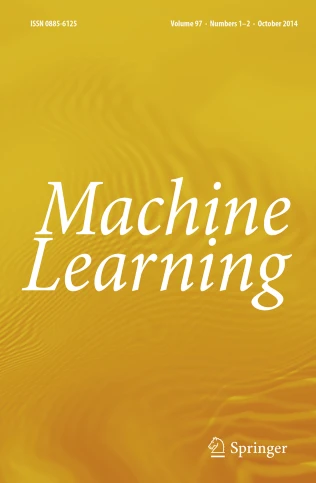多线性模型中的原则性多样化反事实
IF 4.3
3区 计算机科学
Q2 COMPUTER SCIENCE, ARTIFICIAL INTELLIGENCE
引用次数: 0
摘要
摘要 机器学习(ML)应用已经使许多现实生活中的任务自动化,改善了私人和公共生活。然而,许多最先进模型的黑箱性质给模型验证带来了挑战;如何才能确保算法根据适当的标准做出决策,或确保算法不会歧视某些少数群体?在本文中,我们提出了一种从多线性模型(包括随机森林和贝叶斯网络)中生成不同反事实解释的方法。本文章由计算机程序翻译,如有差异,请以英文原文为准。
Principled diverse counterfactuals in multilinear models
Abstract
Machine learning (ML) applications have automated numerous real-life tasks, improving both private and public life. However, the black-box nature of many state-of-the-art models poses the challenge of model verification; how can one be sure that the algorithm bases its decisions on the proper criteria, or that it does not discriminate against certain minority groups? In this paper we propose a way to generate diverse counterfactual explanations from multilinear models, a broad class which includes Random Forests, as well as Bayesian Networks.
求助全文
通过发布文献求助,成功后即可免费获取论文全文。
去求助
来源期刊

Machine Learning
工程技术-计算机:人工智能
CiteScore
11.00
自引率
2.70%
发文量
162
审稿时长
3 months
期刊介绍:
Machine Learning serves as a global platform dedicated to computational approaches in learning. The journal reports substantial findings on diverse learning methods applied to various problems, offering support through empirical studies, theoretical analysis, or connections to psychological phenomena. It demonstrates the application of learning methods to solve significant problems and aims to enhance the conduct of machine learning research with a focus on verifiable and replicable evidence in published papers.
 求助内容:
求助内容: 应助结果提醒方式:
应助结果提醒方式:


